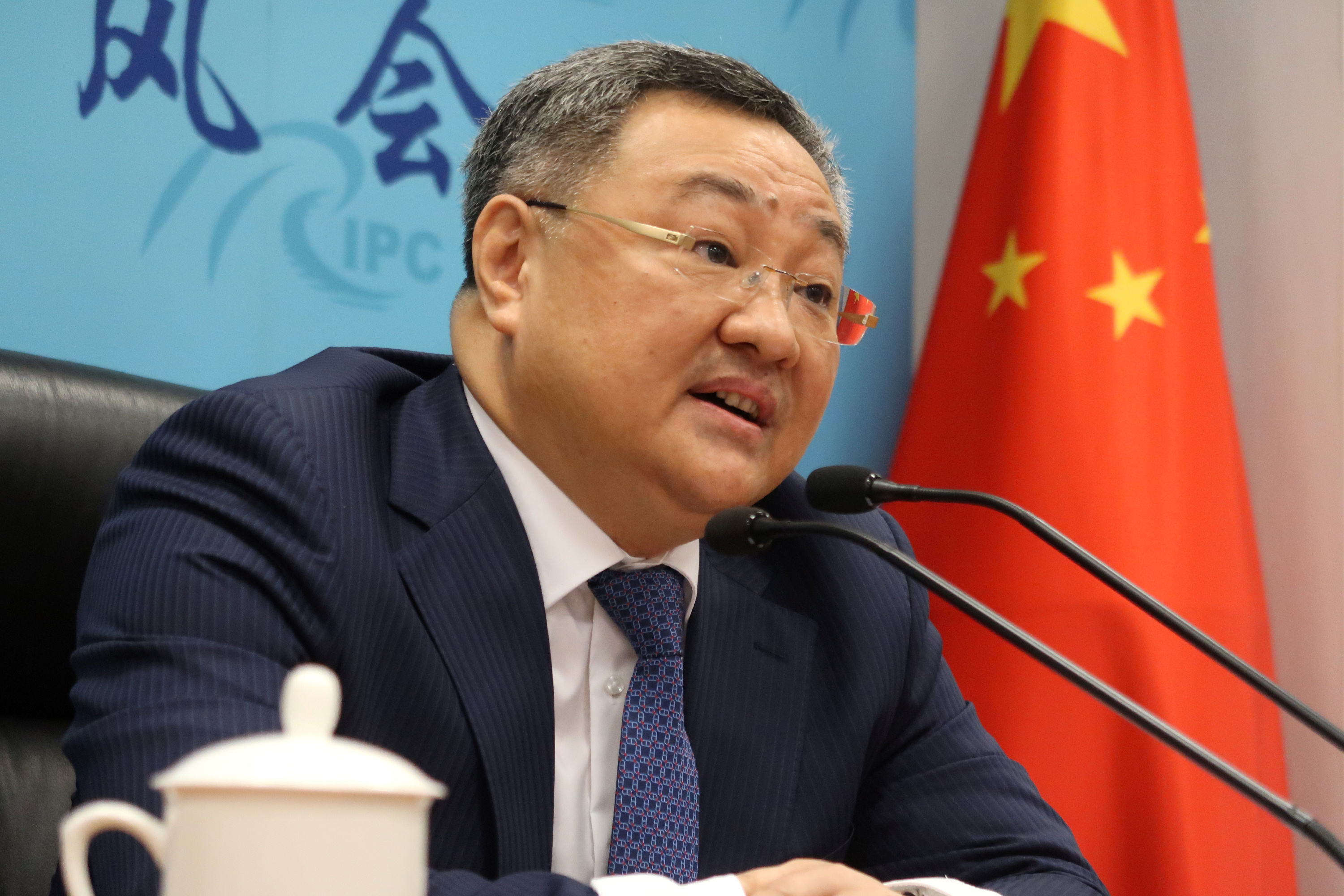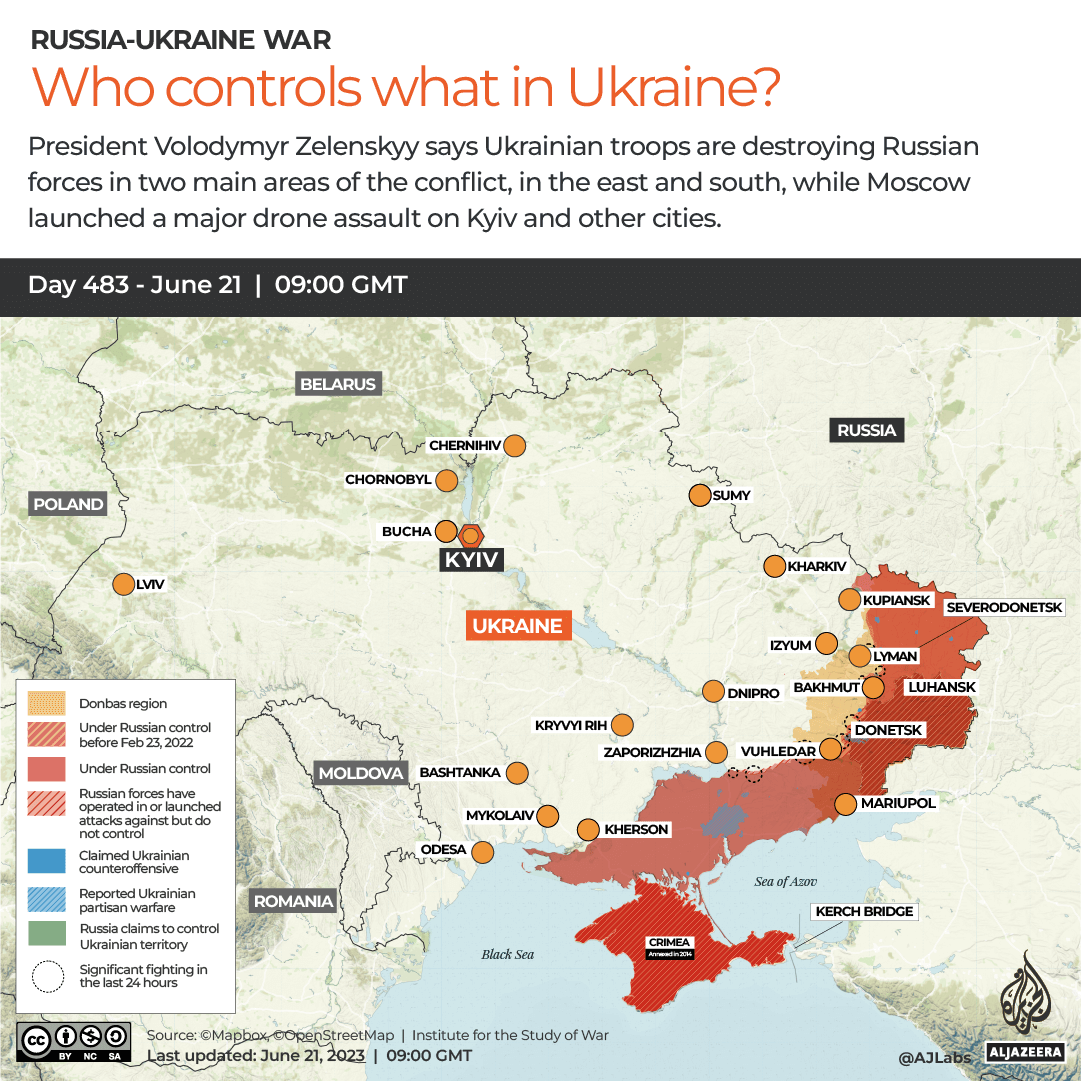
Brussels, Belgium – China’s envoy to the European Union has suggested that Beijing could back Ukraine’s aims of reclaiming its 1991 territorial integrity, which includes Crimea – the peninsula annexed by Russia in 2014.
In a recent interview with Al Jazeera and two other media outlets, when Fu Cong was asked about supporting Kyiv’s goals, which includes reclaiming other Ukrainian regions now occupied by Russia, the senior Chinese diplomat said: “I don’t see why not.
“We respect the territorial integrity of all countries. So when China established relations with the former Soviet Union, that’s what we agreed. But as I said, these are historical issues that need to be negotiated and resolved by Russia and Ukraine and that is what we stand for.”
The Chinese ambassador’s comments followed the 2023 Europe-China Business Summit in Brussels on June 16.
In an interview with the New York Times in April, Fu said that Beijing did not recognise Moscow’s efforts to annex Ukrainian territories including Crimea and the Donbas.
Since Ukraine gained independence from the Soviet Union in 1991, Russia annexed Crimea in 2014 and backed separatist uprisings in parts of Luhansk and Donetsk, which are in the Donbas region of eastern Ukraine.
Although Russia has claimed the peninsula and has extended its occupation in the Donbas, Western powers do not recognise Moscow’s moves.

Besides Fu, Chinese leaders generally refrain from making public comments on Russia’s annexation of Ukrainian territories.
When a United Nations referendum on recognising Crimea’s annexation was held in 2014, China abstained from voting and Liu Jieyi, China’s envoy to the UN at the time said: “China has always opposed intervention in the internal affairs of states and respected the sovereignty and territorial integrity of all countries”- a stance the Chinese foreign ministry reiterated in a statement in April.
China has not officially condemned the Kremlin for invading Ukraine in February 2022 and after Russian mercenary fighters threatened a large-scale rebellion in Moscow over the weekend, China’s alliance with Vladimir Putin remains strong.
“As Russia’s friendly neighbour and comprehensive strategic partner of coordination for the new era, China supports Russia in maintaining national stability and achieving development and prosperity,” China’s foreign ministry said in a statement on Monday, downplaying the unexpected mutiny led by Wagner boss Yevgeny Prigozhin as an “internal affair.”
Ambassador Fu defended China’s position on Ukraine, saying it “has been very clear”.
“We advocate peace and we believe that it is important to achieve peace as soon as possible by resolving differences on the negotiating table,” he said.
In February, Beijing released a 12-point proposal aimed at finding a “political settlement” to end the war. As part of these efforts, China sent ambassador Li Hui to Kyiv, Moscow and other European countries last month.
EU-China ties
But Beijing’s renewed “no-limits” partnership with Moscow and its position on Russia’s war in Ukraine have seen China’s ties with the EU cool to a frost.
Last week, as Chinese Premier Li Qiang visited Europe for the first time since he took office, EU leaders urged him to get tough on Moscow.
The Baltic nations and Poland are particularly frustrated with China, and back imposing sanctions against Beijing and reducing economic dependencies.
In March, before a trip to China, European Commission President Ursula von der Leyen said the bloc should focus on “de-risking” with China, rather than “de-coupling”.
Fu told Al Jazeera that while China understands the EU’s ambitions for a resilient supply chain, the bloc “should not conflate economic security with national security, making it hurt free trade”.
“De-risking should not become de-coupling in another name. The recent developments in the EU over Huawei and ZTE have been concerning,” Fu said, referring to the European Commission’s proposal to ban Huawei and ZTE from 5G networks earlier this month.
“There is no evidence that they are harming cybersecurity and in our view, these baseless accusations go against the spirit of fair play and fair competition, which actually Europe claims to be the champion,” Fu added.
Besides bans, last week, the EU targeted Chinese entities which are allegedly supporting “Russia’s military and industrial complex in its war of aggression against Ukraine” in an eleventh sanctions package against Moscow.
Prior to the announcement of more sanctions, Fu said China has not committed to stopping companies from helping Russia, but he hoped through “dialogue, misunderstandings could be resolved”.







